
1895 Dreyfus Affair in France
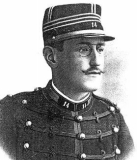
French officer Alfred Dreyfus, condemned for passing military secrets to the Germans, is stripped of his rank in a humiliating public ceremony in the courtyard of Paris' Ecole Militaire. The Jewish artillery captain, convicted on flimsy evidence in a highly irregular trial, began his life sentence on the notorious Devil's Island Prison in French Guyana four months later.
The Dreyfus case demonstrated the anti-Semitism permeating France's military and, because many praised the ruling, in France in general. Interest in the case lapsed until 1896, when evidence was disclosed that implicated French Major Ferdinand Esterhazy as the guilty party. The army attempted to suppress this information, but a national uproar ensued, and the military had no choice but to put Esterhazy on trial. A court-martial was held in January 1898, and Esterhazy was acquitted within an hour.
In response, the French novelist Emile Zola published an open letter on the front page of the Aurore entitled "J'Accuse," which accused the judges of being under the thumb of the military. By the evening, 200,000 copies had been sold. One month later, Zola was sentenced to jail for libel but managed to escape to England. Meanwhile, out of the scandal a perilous national division was born, in which nationalists and members of the Catholic Church supported the military, while republicans, socialists, and advocates of religious freedom lined up to defend Dreyfus.
In 1898, Major Hubert Henry, discoverer of the original letter attributed to Dreyfus, admitted that he had forged much of the evidence against Dreyfus and committed suicide. Soon after, Esterhazy fled the country. The military was forced to order a new court-martial for Dreyfus. In 1899, he was found guilty in another show trial and sentenced to 10 years in prison. However, a new French administration pardoned him, and in 1906 the supreme court of appeals overturned his conviction. The debacle of the Dreyfus affair brought about greater liberalization in France, a reduction in the power of the military, and a formal separation of church and state. (History.com)
1903: On the day of his funeral, Alois Hitler's obituary [Hitler's father had died on January 3], written by "one of Alois Hitler's Leonding acquaintances," is published in the Linz Tagepost:
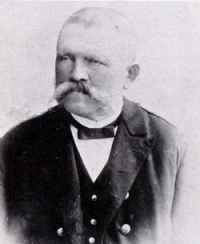
We have buried a good man: this we can rightly say about Alois Hitler, Higher Official of the Imperial Customs, retired, who was carried to his final resting place today. On the third of this month his life came to a sudden end as a result of an apoplectic stroke in the Gasthaus Stiefler, where he had gone because he was feeling unwell, hoping to revive himself with a glass of wine.
Alois Hitler was in his 65th year, and had experienced a full measure of joy and sorrow. Having only an elementary school education, he had first learned the trade of a cobbler, but later taught himself the knowledge needed for a civil service career, which he served with distinction, and in addition he achieved success in husbandry. Salzburg, Braunau, Simbach, Linz, were among the places where he saw service.
Alois Hitler was a progressively minded man through and through and, as such, he was a warm friend of free education. In company he was always cheerful, not to say boisterous. The harsh words that sometimes fell from his lips could not belie the warm heart that beat under the rough exterior. He was always an energetic champion of law and order. Well-informed on all kinds of matters, he could always be counted on to pronounce authoritatively on any subject. Fond of singing, he was never happier than when in a joyful company of fellow enthusiasts. In the sphere of bee-keeping he was an authority.
Not the least of his characteristics was his great frugality and sense of economy and thrift. All in all Hitler's passing has left a great gap, not only in his family: he leaves a widow and four children not well provided for; but also in the circle of his friends and acquaintances who will preserve pleasant memories of him.
In accordance with Alois's status as a very well respected pillar of the community (Honoratioren), nearly the entire village, relatives from Spital, and former colleagues from the custom service attend Alois's funeral. Alois's best friend, primary drinking buddy and fellow customs man Karl Wessely—as well as Josef Mayrhofer, the Mayor of Leonding—are among Alois's pallbearers. By the terms of Alois's will, Mayor Mayrhofer is made the guardian of the minor Hitler children. Adolf assumes the role of the family's eldest male.
Subsequent scholarship has determined that the "not well provided for" line in the obituary is not factual. Alois's pension and assets are substantial, and the family's lifestyle barely alters. In fact, Adolf will now be able to board with five or six other boys in the home of Frau Sekira near the Linz Realschule, thus avoiding the long daily walk. Adolf carries himself with reserve, always using the formal 'Sie' with landlady and peers alike. Frau Sekiras only complaint seems to have been that Adolf, already developing the habit of staying up quite late working on some project or another, would go through an inordinate number of candles. Finding him—in the middle of the night—bent over a map that he was decorating with colored pencils, she asked him: "Why Adolf, what on earth do you suppose you are doing?" "Studying maps," he curtly replied.
Even though Klara does her best to motivate the boy, trying as well as she can to enforce Alois's posthumous wishes for Adolf's education, he continues to post failing marks. [For further details, Click here.]
1916 World War I: First conscription bill is introduced in British parliament:
With the Great War edging into its third calendar year, British Prime Minister Herbert Asquith introduces the first military conscription bill in his country's history to the House of Commons on this day in 1916.
Lord Horatio Herbert Kitchener, Britain's secretary of state for war, had warned from the beginning that the war would be decided by Britain's last 1 million men. All the regular divisions of the British army went into action in the summer of 1914 and the campaign for volunteers based around the slogan "Your King and Country Need You! began in earnest in August of that year. New volunteers were rapidly enlisted and trained, many of them joining what were known as Pals battalions, or regiments of men from the same town or from similar professional backgrounds.
Though the volunteer response was undoubtedly impressive—almost 500,000 men enlisted in the first six weeks of the war alone—some doubted the quality of these so-called Kitchener armies. British General Henry Wilson, a career military man, wrote in his diary of his country's "ridiculous and preposterous army" and compared it unfavorably to that of Germany, which, with the help of conscription, had been steadily building and improving its armed forces for the past 40 years.
By the end of 1915, as the war proved to be far longer and bloodier than expected and the army shrank—Britain had lost 60,000 officers by late summer—it had become clear to Kitchener that military conscription would be necessary to win the war. Asquith, though he feared conscription would be a politically unattractive proposition, finally submitted. On January 5, 1916, he introduced the first conscription bill to Parliament. It was passed into law as the Military Service Act later that month and went into effect on February 10.
Britain had entered the war believing that its primary role would be to provide industrial and economic support to its allies, but by war's end the country had enlisted 49 percent of its men between the ages of 15 and 49 for military service, a clear testament to the immense human sacrifice the conflict demanded. (History.com)
1919 Germany: Spartacist Uprising: Spartacists in Berlin, led by Rosa Luxemburg and Karl Liebknecht, attempt to take over the government and manage to seize a number of buildings:

The Spartakusaufstand, also known as the January uprising (Januaraufstand), was a general strike (and the armed battles accompanying it) in Germany from January 5 to January 12, 1919. Its suppression is considered to mark the end of the German Revolution. The name Spartacist uprising is generally used for the event even though neither the Spartacist League nor the Communist Party of Germany (KPD) initiated or led the uprising and only participated after it had already begun. It was only one of a number of reasons contributing to disillusionment within Germany towards the Weimar Government.
The uprising began after the January 4 discharge of the Berlin Chief of Police Emil Eichhorn, a member of the Independent Social Democratic Party (USPD) by the "Council of the People's Deputies" (Rat der Volksbeauftragten), whose politics were mainly controlled by Friedrich Ebert from the Social Democratic Party (SPD) since the USPD left the committee December 29, 1918. Eichhorn had refused to take up arms against striking workers in the Christmas turmoils on December 24, so that Ebert considered him to be unreliable.
1919 Germany: The German Workers Party—later to become the National Socialist German Workers Party—is founded:
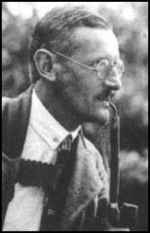
The DAP was founded in Munich in the hotel "Fuerstenfelder Hof" on January 5, 1919 by Anton Drexler, a member of the occultist Thule Society. It developed out of the "Freien Arbeiterausschuss fuer einen guten Frieden" (Free Workers' Committee for a good Peace) which Drexler had also founded and led. Its first members were mostly colleagues of Drexler's from the Munich rail depot. Drexler was encouraged to found the DAP by his mentor, Dr. Paul Tafel, a leader of the Alldeutscher Verband (Pan-Germanist Union), a director of the Maschinenfabrik Augsburg-Nuernberg, and a member of the Thule Society, and his wish was for a party which was both in touch with the masses and nationalist, unlike the middle class parties. The initial membership was about forty people. [For further details, Click here.]
1934 Church and Reich: Catholic worshippers in Germany are told at services that according to Catholic doctrine it is forbidden to volunteer for sterilization or apply for the sterilization of another. "We appreciate every consideration for the basic principle." (THP)
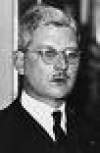
1935 Holocaust: Austria: The American Jewish committee reports that the Jewish situation in has worsened since Kurt von Schuschnigg(above) took over the Chancellorship. [See: Austria: The Other Germany.]
1937 Poland: The Zionist Organization votes to support the Polish Socialist parties in all future elections.
1940 Various:
Holocaust:
Church and Reich: Cardinal Hlond submits a new and detailed report to Pius XII on the deportations and arrests of Polish priests, the closing of churches and the brutal treatment meted out to the Polish population.
1942 World War II: USA: Today is the deadline for 'enemy aliens' in San Francisco to surrender to the Western Defense Command radio transmitters, short-wave receivers and precision cameras.
1943 World War II: Various:
From a Sauckel circular:
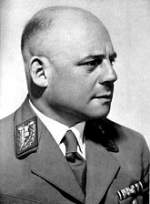
On 4 January 1943, at 8 o'clock in the evening, Minister Speer telephoned from the general headquarters of the Fuehrer giving the information that, by virtue of a decision of the Fuehrer it was no longer necessary, when recruiting skilled and unskilled labor in France, to have any particular regard for the French. Recruitment could be carried on there with pressure and more severe measures.
Stalin to FDR:

Your message concerning the Far East received. I thank you for the readiness to send 100 bombers to the Far East for the Soviet Union. I must say, however, that what we need at present is aircraft, not in the Far East, where the USSR is not fighting, but on a front where a most cruel war is being waged against the Germans, that is, on the Soviet-German front. The arrival of these aircraft without pilots - because we have a sufficient number of pilots - on the South-Western or Central Front would play a notable part in the most important sectors of our struggle against Hitler. As regards the whole course of the war on our fronts, so far our offensive is, on the whole, making satisfactory progress.
USA: William Henry Hastie: civilian aide to the secretary of war, resigns to protest segregation in the armed forces.
1945 World War II: Various:
Soviets recognize pro-Soviet Polish Provisional Government: On the eve of a major offensive into Poland, the Soviet Union decides to recognize the pro-Soviet Lublin Committee as the Provisional Government of Poland instead of the government-in-exile that was temporarily being headquartered in London.
On September 1, 1939, a massive German army invaded Poland. Sixteen days later, the USSR invaded Poland from the east. During this tumultuous period, Gen. Wladyslaw Sikorski became leader of a Polish government-in-exile in London. He developed a good working relationship with the Allies until April 1943, when Soviet Premier Joseph Stalin broke off Polish-Soviet diplomatic relations after Sikorski requested that the Red Cross investigate the alleged Soviet slaughter of Polish officers in the Katyn forest of eastern Poland in 1942.
As the war progressed and the Soviets battled the Germans in western Poland, the Polish government-in-exile began to fear that Soviet domination might follow if the Soviets defeated Germany for control of the Polish territory. Stanislaw Mikolajczyk, Sikorski's successor as the provisional government head, pleaded with the Allies to secure Poland's postwar borders and sovereignty, but no such assurances were granted. In August 1944, the Polish Home Army, fearful that the Soviets would march on Warsaw to battle the Germans and never leave the capital, led an uprising against the German occupiers. They hoped that if they could defeat the Germans, the Allies would help install the anti-Communist government-in-exile after the war.
Unfortunately, the Soviets, rather than aiding the uprising that they encouraged in the name of beating back their common enemy, stood idly by and watched as the Germans slaughtered the Poles and sent survivors to concentration camps.
With native Polish resistance eradicated, and in anticipation of one last offensive against the Germans, the Soviet Union created its own pro-communist Polish provisional government to counter the anti-communist government-in-exile. At the Yalta Conference in February 1945, the Allies agreed that an interim government would be formed from both the pro- and anti-communist sides, with free elections to follow. The Soviets had other plans, though, and promptly turned the exhausted and battered Poland into a nondemocratic satellite country, which it remained until 1989. (History.com) Kamikaze pilots get first order: On this day in 1945, Japanese pilots received the first order to become kamikaze, meaning "divine wind" in Japanese. The suicidal blitz of the kamikazes revealed Japan's desperation in the final months of World War II. Most of Japan's top pilots were dead, but youngsters needed little training to take planes full of explosives and crash them into ships. At Okinawa, they sank 30 ships and killed almost 5,000 Americans. (History.com)
1949: Truman delivers his Fair Deal speech: On this day in 1949, President Harry S. Truman announces, in his State of the Union address, that every American has a right to expect from our government a fair deal. [For further details, Click here.]
1957 Cold War: Eisenhower proposes new Middle East policy: In response to the increasingly tense situation in the Middle East, President Dwight D. Eisenhower delivers a proposal to Congress that calls for a new and more proactive U.S. policy in the region. The "Eisenhower Doctrine," as the proposal soon came to be known, established the Middle East as a Cold War battlefield.
The United States believed that the situation in the Middle East degenerated badly during 1956, and Egypt leader Gamal Nasser was deemed largely responsible. The U.S. used Nasser's anti-western nationalism and his increasingly close relations with the Soviet Union as justification for withdrawing U.S. support for the construction of the Aswan Dam on the Nile River in July 1956. Less than a month later, Nasser seized control of the Suez Canal. This action prompted, in late October, a coordinated attack by French, British, and Israeli military on Egypt. Suddenly, it appeared that the Middle East might be the site of World War III. [For further details, Click here.]
1962 Mr. Francis Biddle, IMT Member for the United States of America, in an interview: We were an international Bench and looked at our legal and political obligations from different angles. Diplomatic horse-trading was combined with the duties of the judge. It necessarily played some part in certain decisions since an agreed judgement would not have been possible otherwise . . . . In our deliberations we could not leave out of account the effect of our decisions on public opinion. [See: Are There Any Lasting Effects From the Nuremberg Trials?] 1966 Sergey Korolyov: the lead Soviet rocket engineer and spacecraft designer, dies in a hospital bed, from cancer, aggravated by a weak heart, and malpractice by his doctors. Under a policy initiated by Stalin, and continued by his successors, the identity of Korolyov had never been revealed to the Soviet public. The purported reason was to protect him from foreign agents from the United States. As a result, the Soviet people had never become aware of his accomplishments, until his obituary is published in the Pravda newspaper on 16 January 1966, showing a photograph of Korolyov with all his medals. His ashes are interred with state honors, in the Kremlin Wall. (Harford) [See: Wunderwaffen: Hitler's Deception and the History of Rocketry.] 1968 Prague Spring begins in Czechoslovakia:
Antonin Novotny, the Stalinist ruler of Czechoslovakia, is succeeded as first secretary by Alexander Dubcek, a Slovak who supports liberal reforms. In the first few months of his rule, Dubcek introduced a series of far-reaching political and economic reforms, including increased freedom of speech and the rehabilitation of political dissidents. Dubcek's effort to establish "communism with a human face" was celebrated across the country, and the brief period of freedom became known as the "Prague Spring." [For further information, click here]
1976 Pol Pot renames Cambodia:
On this day in 1976, Khmer Rouge leader Pol Pot announces a new constitution changing the name of Cambodia to Kampuchea and legalizing its Communist government. During the next three years his brutal regime sent the nation back to the Middle Ages and was responsible for the deaths of an estimated 1 to 2 million Cambodians. [For further information, click here]
2004 Death: John Toland: historian: He was awarded the 1971 Pulitzer Prize for nonfiction for his book The Rising Sun: The Decline and Fall of the Japanese Empire, 1936—1945, which tells the story of the Pacific War mainly from the Japanese viewpoint. Toland also wrote a monumental two volume biography of Hitler, Adolf Hitler: The Definitive Biography. Though it is not actually "definitive", it is one of the better biographies of Adolf Hitler yet written. Toland died in Connecticut at the age of 91. [See: The Third Reich: What to Read?]
[See: Did Adolf Hitler Cause the Cold War?]


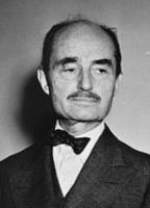
Edited by Levi Bookin (Copy editor) Click to join 3rdReichStudies
FAIR USE NOTICE: This site may contain copyrighted material the use of which has not always been specifically authorized by the copyright owner. We are making such material available in our efforts to advance understanding of historical, political, human rights, economic, democracy, scientific, environmental, and social justice issues, etc. We believe this constitutes a 'fair use' of any such copyrighted material as provided for in section 107 of the US Copyright Law. In accordance with Title 17 U.S.C. Section 107, the material on this site is distributed without profit to those who have expressed a prior interest in receiving the included information for research and educational purposes. If you wish to use copyrighted material from this site for purposes of your own that go beyond 'fair use', you must obtain permission from the copyright owner.
Please note that the list-owner and the moderators are not responsible for, and do not necessarily approve of, the random ads placed on our pages by our web server. They are, unfortunately, the price one pays for a 'free' website.
levi.bookin@gmail.com






